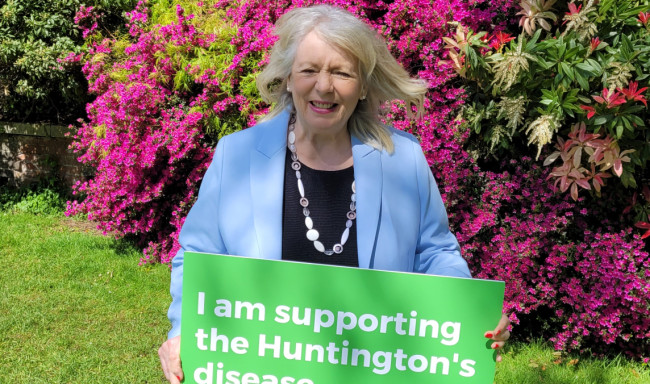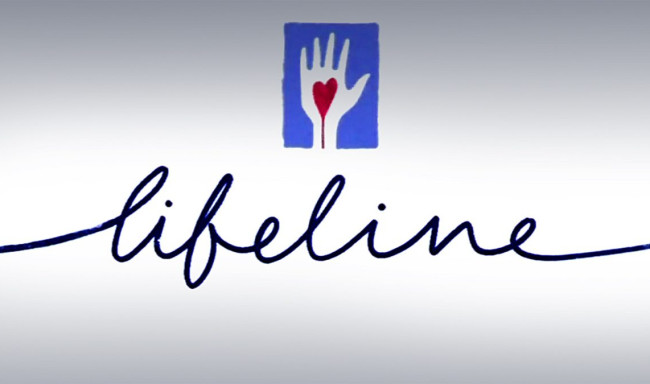Over 50 charities have joined together to write to the Secretary of State for the Department of Health and Social Care about how people affected by a neurological condition struggle to access mental health services.
In the letter signed by charities including the Huntington's Disease Association, the Neurological Alliance, Epilepsy Action, The Migraine Trust, The Brain Charity, Motor Neurone Disease Association and many more. We have asked for:
- reviewed eligibility criteria for NHS Mental Health Trusts
- specialist training and support to clinicians
- more specialist mental health staff and services for people living with neurological conditions
By joining forces we are united in our fight for improved access to mental health services for people affected by a neurological condition.
The letter
Dear Secretary of State,
We are writing to you as representatives of charities supporting people affected by neurological conditions.
Ahead of World Mental Health Day we want to highlight the challenges people living with neurological conditions are facing in relation to their mental health.
This year’s theme is 'Mental health is a universal human right.' However, this right is being denied to some because of the type of condition they live with. One in six people in the UK live with a neurological condition and mental health issues are common. In the Neurological Alliance Neurological Patient Experience Survey 2021 (My Neuro Survey), 81% of respondents said their neurological condition affected their mental wellbeing.
Despite this commonality, many are being denied access to mental health services and this is happening across the country. Even if a person with a neurological condition experiences common mental health issues - such as anxiety or depression - clinicians may not refer them for mental health services simply because of the nature of their illness and some who are referred are refused access.
In the same survey, 60% of respondents said their mental wellbeing had not been asked about by a health or social care professional within the last three years. In a recent survey of healthcare professionals, the Huntington’s Disease Association found that 60% of patients were denied access to mental health services because of having Huntington's disease.
Of those who were denied access to mental health services, over a quarter of respondents said this was because Huntington's disease is a neurological condition/organic brain disorder (28%). Over a fifth said it was because the disease is not seen as a condition with mental health symptoms (21%).
These findings align with those of the Neurological Alliance, where in their Neurological Patient Experience Survey 2021, 61% of respondents said they would have found counselling helpful, but it had not been offered as a treatment. Similarly, 62% would have found neuropsychiatry helpful but it had not been offered to them.
We are keen to ensure that this is stopped. Neurological conditions often have both physical and mental symptoms and limiting patient access to mental health services is worsening mental health. Those denied access to services are more likely to end up in crisis situations - such as emergency hospital admissions, being sectioned or are at increased risk of harm to themselves or others.
In the short term, the government and NHS England have a critical role to play in ensuring that people living with neurological conditions - as well as their carers and families - are eligible to access mental health services when mental health symptoms are present. This includes reviewing eligibility criteria for NHS Mental Health Trusts.
In the medium term, as there is a lack of understanding about how mental health symptoms affect people living with neurological conditions, NHS England should provide specialist training and support to clinicians.
In the long term, there should be more specialist mental health staff and services for people living with neurological conditions. There are centres of clinical excellence, such as The Barberry in Birmingham. These services could be used as models for driving up standards in mental health support across the country.
We look forward to hearing from you.
Yours sincerely,
- Cath Stanley, CEO of the Huntington’s Disease Association
- Georgina Carr, CEO of the Neurological Alliance
- Sarah Cuthell, CEO of MyAware
- Simon Bull, Chief Executive of CMTUK
- Vanessa Martin, Chair of Children Tumour Trust
- Victoria Wareham, Director of Operations and Development for Dystonia UK
- Phil Lee, CEO of Epilepsy Action’s Chief Executive
- Rebecca Middleton, Chief Executive and Founder of Hereditary Brain Aneurysm Support
- David Martin, CEO of MS Trust
- Karen Cockburn, Charity Director for Nerve Tumours UK
- Helen Evans, CEO of Cavernoma Alliance UK
- Kripen Dhrona, CEO of the British Polio Fellowship
- Austin Willett, CEO of Different Strokes
- Emma McNally, CEO of Tourettes Action
- Dan Knowles, CEO of Brain Tumour Research
- Rob Music, CEO of The Migraine Trust
- Caroline Morrice, CEO of Gain Charity
- Doctor Julian Spinks, Chair of RLS-UK
- Debbie Abrams, Membership Secretary of RLS-UK
- Sara Hunt, CEO of the Alex The Leukodystrophy Charity
- Alexandra Holden, CEO of Overcoming MS
- Julie Fountain, CEO of Matthew’s Friends Ketogenic Therapies Charity
- Steve Webster, Founder and CEO of FND DimensionsAndy Barrick, Deputy CEO of the Multiple System Atrophy Trust
- Paul Spaven, Chair of Trustees of the Neuro Therapy Network
- Vicky Burford, Chair of Trustees for PANS PANDAS UK
- Pippa Sargent, CEO of The Brain Charity
- Lesley Pope, Chair of The Independent Neurological Providers Alliance
- Juliet Tizzard, Director of External Relations for Parkinson's UK
- Dr Jenna Moffitt, Consultant Clinical Neuropsychologist for the British Psychological Society
- Sue Millman, CEO of Ataxia UK
- Nick Meade, Director of Policy of the Genetic Alliance
- Alex Massey, Head of Campaigning, Policy and Public Affairs, Motor Neurone Disease Association
- Adine Aonis, Chair of the Association of Chartered Physiotherapists in Neurology (ACPIN)
- Marc Smith, CEO of the Brain and Spine Foundation
- Claire Eldred, Director of Dravet Syndrome UK
- Rebecca Packwood, CEO of PSPA
- Chloe Hayward, Executive Director of UKABIF
- George Pepper, CEO of Shift.ms
- Helen Matthews, CEO of Cure Parkinson’s
- Trudy Morgan, Chair and Founding member of Glut1 Deficiency UK
- Shelly Williamson, Chair of IIH UK
- Sophie Muir, Chair of Trustees, Timothy Syndrome Alliance
- Clare Joy, Chair of CSF Leak Association
- Tony Thornburn OBE, Chair of Behçet’s UK
- Richard J Davenport DM FRCP Edin, Consultant Neurologist at NHS Lothian



